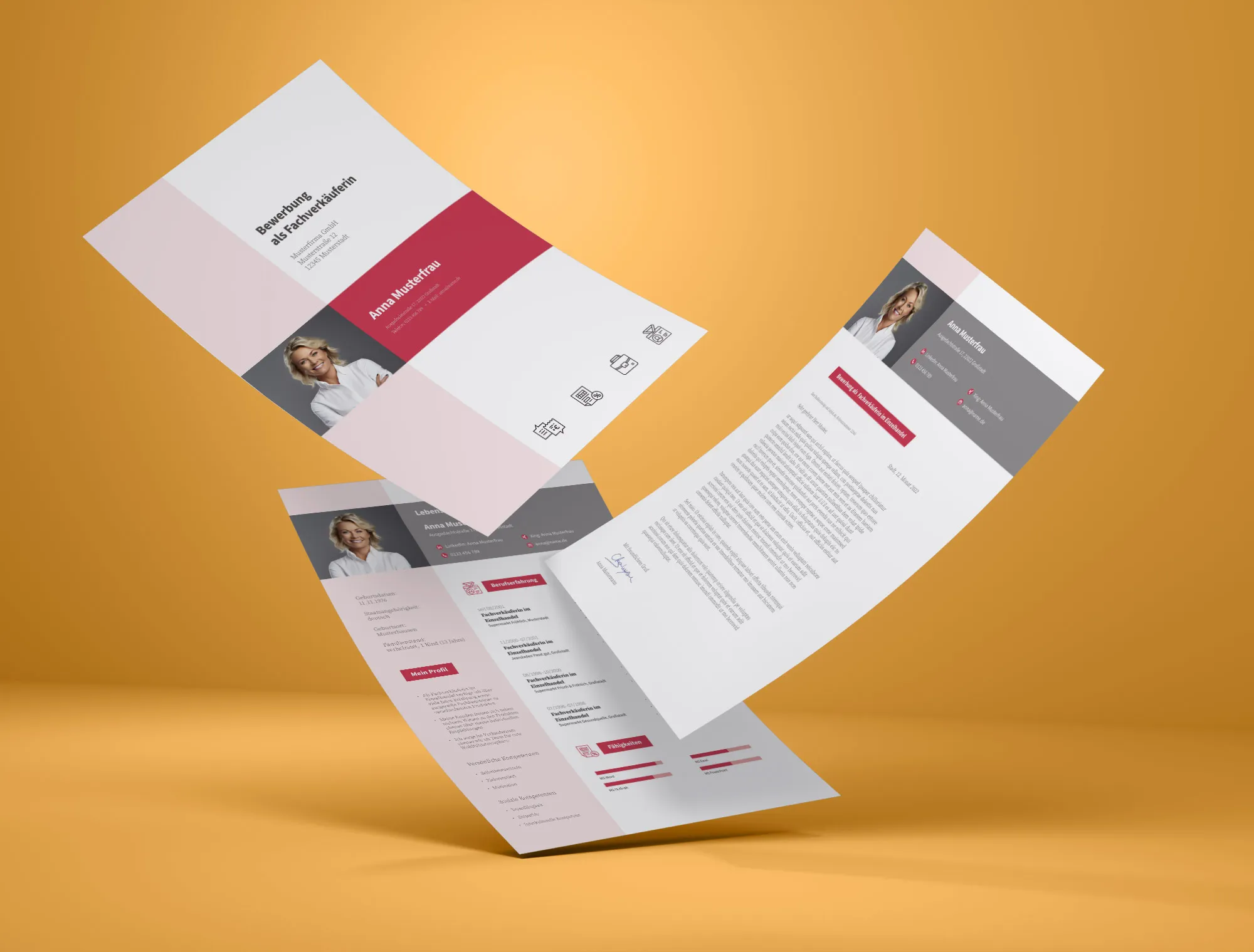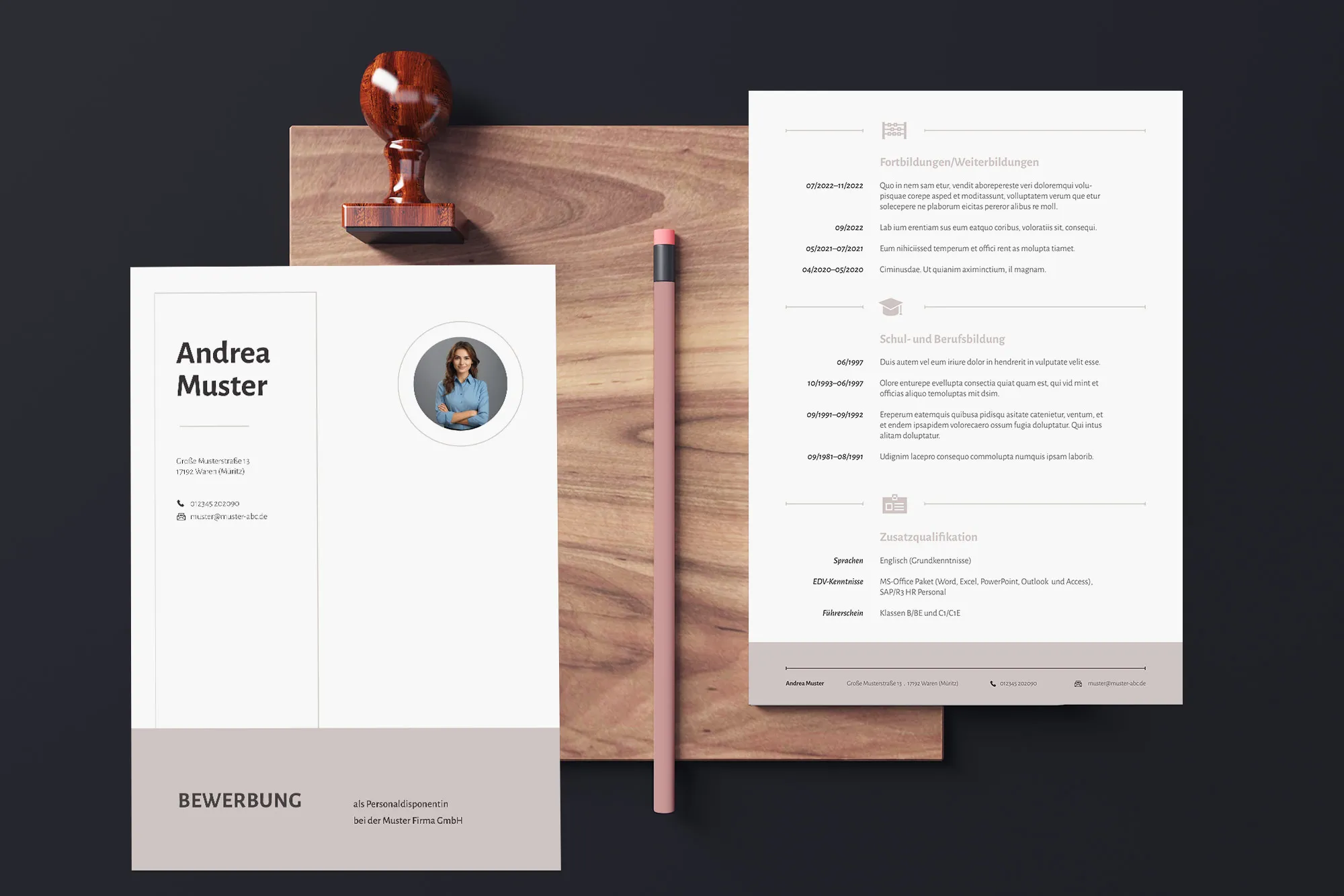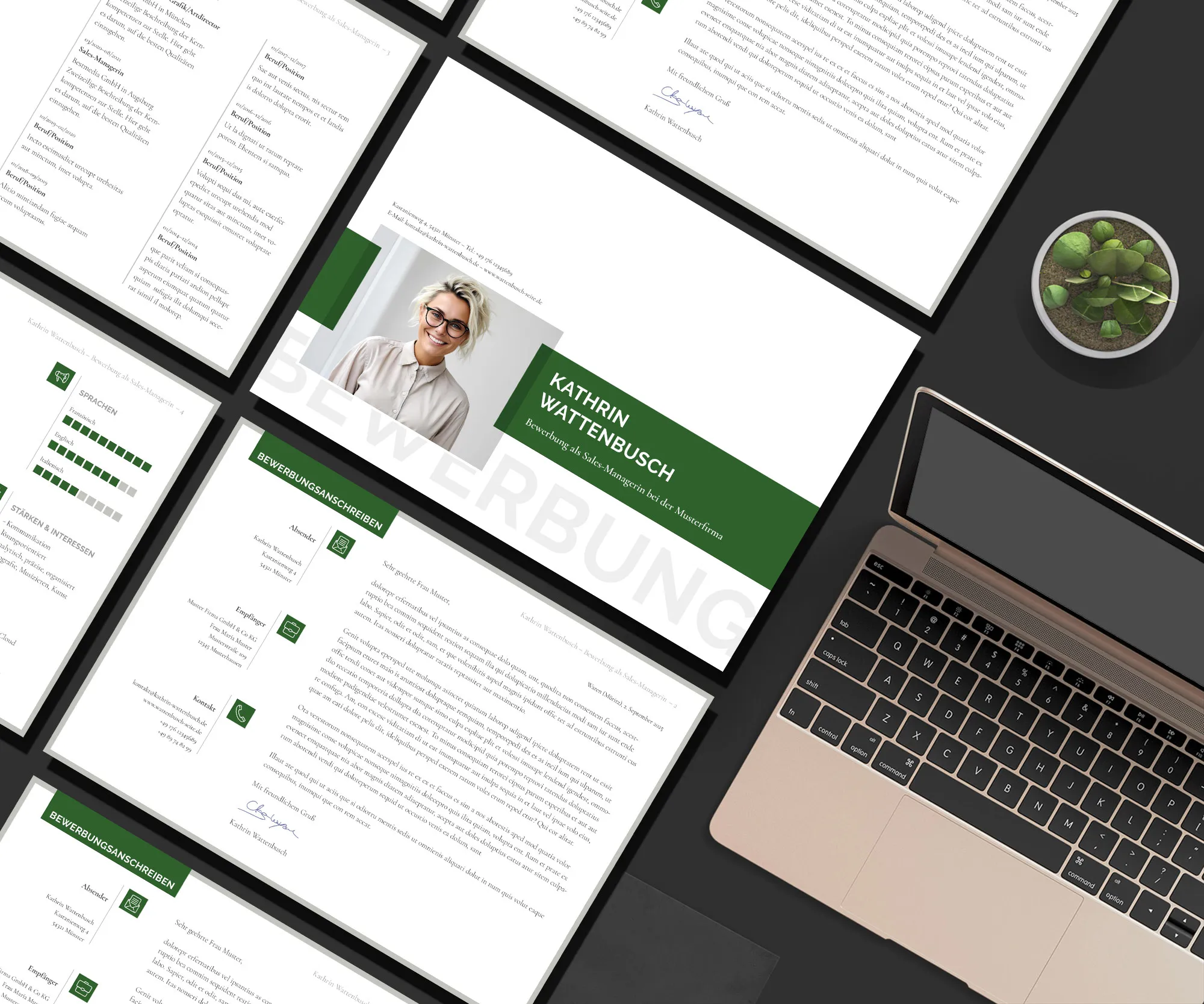Sign language interpreter: Template for a job application with resume
Imagine giving a voice to people through your hands who might otherwise remain silent. That is the powerful role of a sign language interpreter! If you are interested in this special profession and are looking for the best tips for your application as a sign language interpreter, you are in the right place. We offer you a wealth of information to help you create a compelling resume and an impressive cover letter. Whether you are looking for wording assistance for your cover letter or need examples for your resume - we have everything you need to apply strategically and successfully. With our tips, you can ensure that your cover letter is perfectly tailored to you and that both your cover letter and resume reflect your skills and passion for the profession of sign language interpreter. Let us support you on your way to a fulfilling and successful career in this exciting field!
New Job as a Sign Language Interpreter?! Achieve it with our template and application designs
Feel free to be inspired by our sample cover letter for the application as a sign language interpreter. This template supports you with helpful phrases for your cover letter in this professional field. Make sure to carefully consider the specific requirements of the job advertisement. Skillfully link your previous skills and experiences with the required competencies and attributes of the job posting. It is important for the recruiter to see that you are both professionally qualified and genuinely interested in the advertised position. This way, your chances of being invited to an interview are good.
Dear [Name],
Ever since I first encountered sign language, the visual and gestural diversity of this language has impressed me. This fascination has prompted me to undergo training as a sign language interpreter.
Throughout my training and various internships, I have acquired solid knowledge of German Sign Language (DGS) and have been able to successfully apply it in different contexts. Particularly noteworthy is my work at [Institute/Company], where I have taken on interpreting tasks in educational and corporate settings. I have always emphasized precise and culturally sensitive communication.
However, my commitment does not only extend to the technical skills of interpreting. I see myself as a mediator between two cultures and aim to contribute to breaking down barriers and promoting the inclusion of deaf and hard of hearing individuals through my work. My patience, empathy, and quick grasp help me translate complex content clearly and understandably.
I would be delighted to learn more about your requirements and expectations in a personal conversation and to give you a better impression of my skills and motivation.
Yours sincerely
[Your Name]
Do you like the template? Feel free to use it as a template for your application as a sign language interpreter and customize it to your needs. Don't forget to add your personal information, the recipient's complete address, and the date. If you know the contact person, it is always better to address them directly, for example: Dear Mr. Müller.

Apply Individually: How to Tailor Your Cover Letter to Your Experiences for Your Application
It is important to individually adapt the given template for your cover letter to your own circumstances and professional experiences. Each applicant brings different skills and knowledge that do not fully come across in a standardized document. Think about how you can highlight your strengths and uniqueness through targeted adjustments.
- Interpreting at events: Communication between deaf and hearing participants.
- Translating written documents: Converting texts into sign language videos or vice versa.
- Individual support: Assisting people in their daily lives, e.g., during doctor visits.
- Conducting trainings: Teaching sign language to interested individuals.
- Preparing for interpreting assignments: Familiarizing oneself with specific topics and terminology.
- Mediation in case of misunderstandings: Mediating in communication problems between deaf and hearing individuals.
- Emergency interpreting: Translating into sign language in acute situations, e.g., during police interventions.
By customizing your cover letter, you can highlight your special skills and relevant experiences as a sign language interpreter. The activities listed illustrate the diverse and responsible tasks that come with this profession. This way, you can provide the potential employer with a clear and convincing picture of your abilities.

Where you can apply as a sign language interpreter
As a sign language interpreter, you have versatile opportunities to work in various industries. This work is not only important in communication but also contributes to the inclusion and equality of hearing-impaired people. Here you get an overview of some industries where your skills could be in demand.
- Education: At schools and universities, you support hearing-impaired students by interpreting classes and lectures. You help make education accessible and ensure equal learning opportunities.
- Medical: In hospitals and doctor's offices, you help interpret conversations between doctors and patients. This ensures clear and understandable communication, which is crucial for medical care.
- Legal: In court hearings, lawyer consultations, and other legal matters, you are essential as an interpreter to uphold the rights of hearing-impaired individuals. You contribute to ensuring that they can be adequately represented in court.
- Media: In television, film productions, or online communication formats, you help make information and entertainment accessible to deaf people. You translate live broadcasts or produced content into sign language.
- Job market: In companies and with employers, you support hearing-impaired employees in meetings, job interviews, and further education. You help them participate equally in the workplace.
- Social work: In social institutions, counseling centers, or with life assistance, you facilitate communication between hearing-impaired individuals and their counselors or social workers. You help ensure that their needs and concerns are understood and adequately supported.
As a sign language interpreter, you have the opportunity to work in various important industries. Whether in education, the medical field, the legal system, the media, or the workplace – your work in all these areas makes a valuable contribution to the inclusion of people with hearing impairments.

Optimal CV: Samples and Design Suggestions
When applying for a position as a sign language interpreter, your CV should highlight certain important information and skills. A well-structured and informative CV can make a difference and help you stand out from other applicants.
- Language Skills: List your proficiency in German Sign Language (DGS) and other relevant sign languages in detail.
- Education and Qualifications: Mention your education and certificates in the field of sign language and interpreting.
- Work Experience: Details about previous practical experiences, e.g., in educational settings, medical fields, or events, are important.
- Interdisciplinary Skills: Emphasize your ability to communicate effectively in multicultural and diverse contexts.
- Technical Skills: Many interpreters now work online as well, so you should mention your knowledge of relevant technologies and software.
A compelling CV for applying as a sign language interpreter should clearly and concisely present your language skills, qualifications, and relevant work experiences. By emphasizing these key points, you can convince employers that you are the right choice for the position.
Whether it's a cover letter, resume, or CV: Bring your application as a sign language interpreter into top form design-wise. Use our application templates, which you can edit in Word, among other options:
From Matthias Petri
